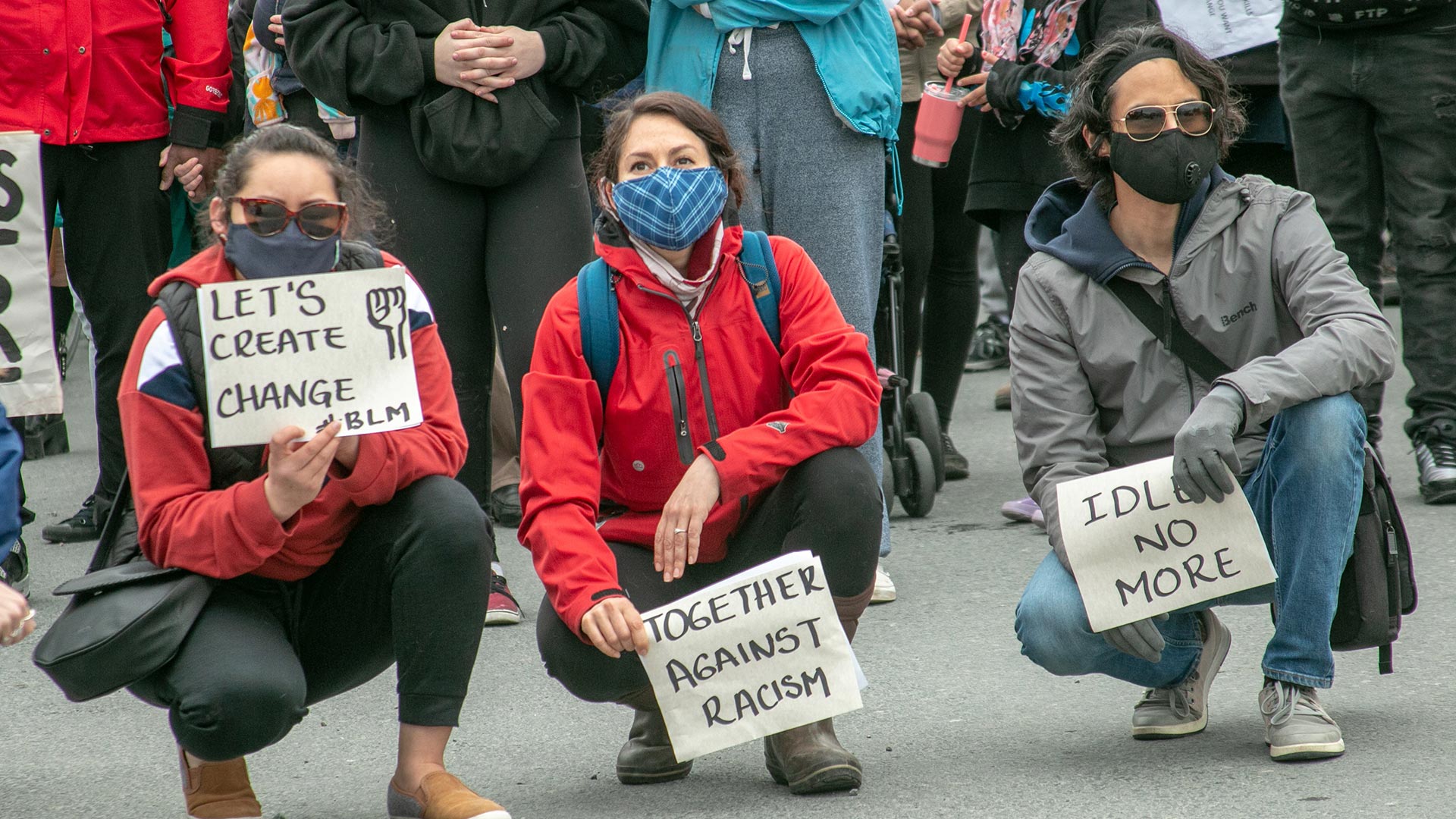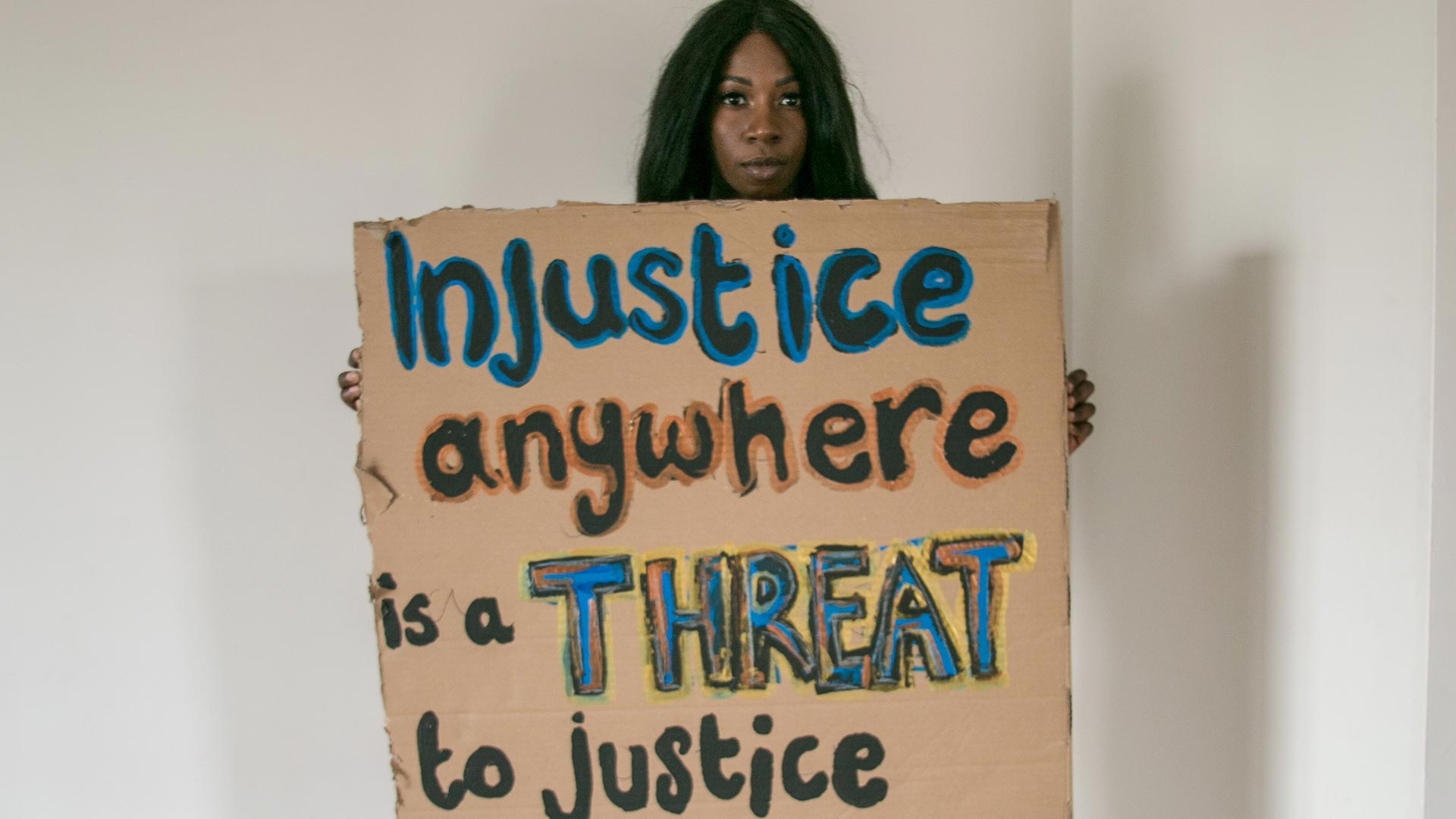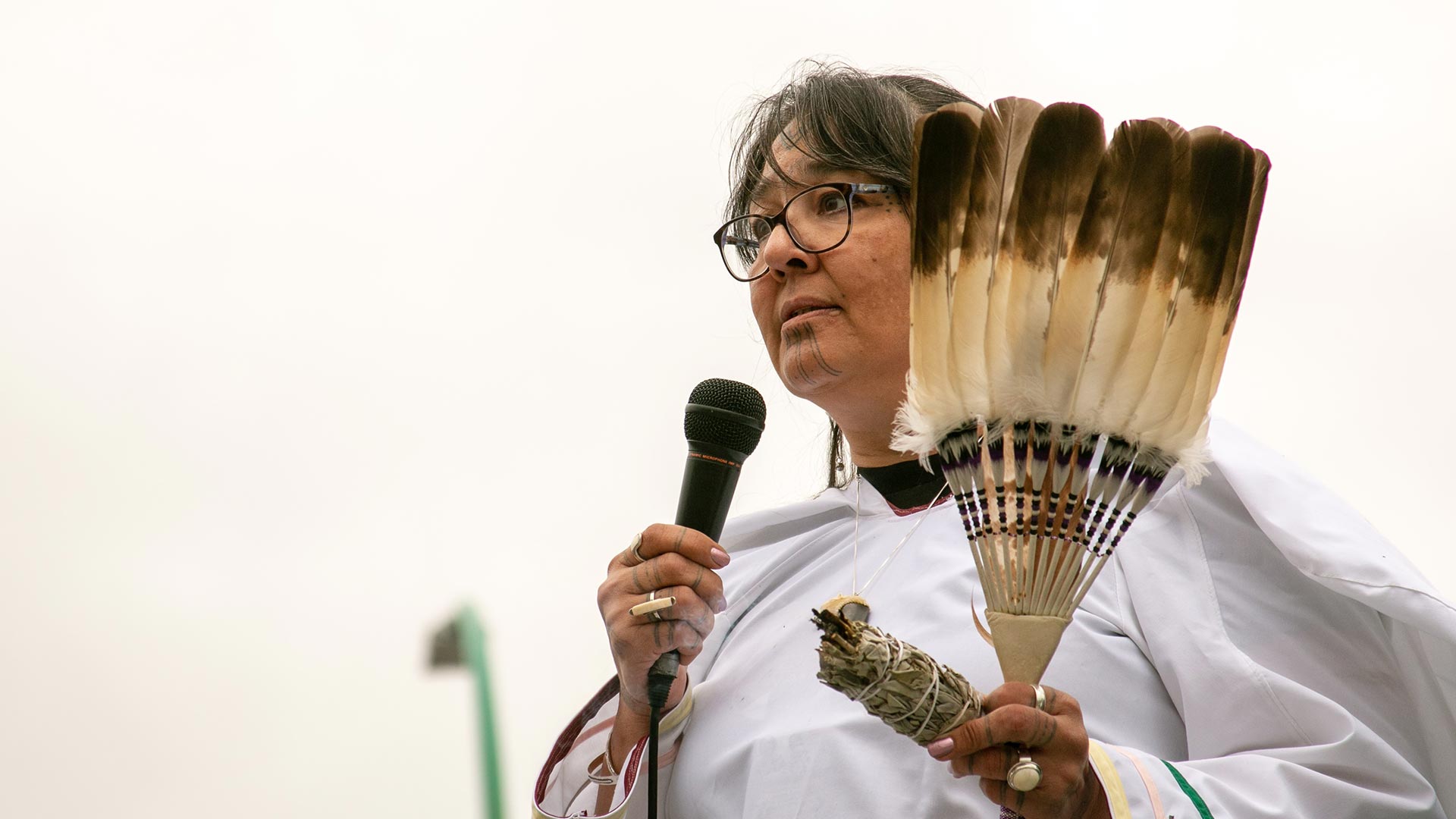The sound of a drum beating along with cries of “No justice, No peace,” filled the downtown core of Yellowknife this week as hundreds gathered for an anti-racism demonstration in support of the Black Lives Matter movement.
The solidarity march occurred the same day as the funeral for George Floyd, a Black man allegedly killed by a white police officer in Minneapolis, Minn., on May 25.
Inemesit Graham helped co-ordinate speakers for the event and said it was important to recognize racism in the Northwest Territories.
“Even in Canada when people say we are removed – Black people are two times as likely to die in police custody, Indigenous people are three times as likely to die in police custody. Both Black and indigenous people only make up three percent of the population,” she said.
On social media, the event was advertised as a motorcade that made no stops and saw speaker’s livestreamed from their homes.

This was because event organizers asked police beforehand if participants could march on foot and were told no because of COVID-19 restrictions.
“We are protesting against something we think is more important than these restrictions. And I know COVID-19 is a valid concern but a lot of people think racism is a pandemic killing people. COVID-19 is new, racism is centuries old,” Graham said.
The march went ahead on foot, with protesters waving handmade signs with messages like “defund the police” and “silence is violence.”
When protestors reached the RCMP detachment they got down on one knee, raised their fists in the air, and chanted “Black lives matter” and “enough is enough.”
Organizer Ambe Chenemu asked the crowd: “Have you seen one officer of colour around here? Have you seen one Indigenous officer around here? Why is that?”

Chenemu, who is from Cameroon, said he hadn’t experienced racism until he moved to Canada in 2012. While he acknowledged law enforcement was needed, he said body cameras should be incorporated and made available for viewing by the public.
While the rally was in support of the Black Lives Matter movement – solidarity between all groups of northerners was paramount.
“We don’t want to speak over each other. We don’t want deal with Indigenous racism and black racism separately,” Chenemu said.
Gerri Sharpe, a local Inuk activist, said she felt obligated to march and speak at the event.
“Come hell or high water my grandbabies will not have to do what I am doing now. My children expect this of me,” she said.

Sharpe spoke about recent violence towards Indigenous people including the Nunavut RCMP officer who allegedly hit a man with a truck in Kinngait and police in New Brunswick who shot and killed Chantel Moore, a 26-year old Indigenous woman.
Sharpe demanded better from police in the North and gave examples of how she has experienced racism.
“No RCMP member or their wife should come up to me and say, ‘What tribe are you from?’ Where is that acceptable?” she asked the crowd.
But examples of racism are not confined only to law enforcement.
“When people say we are so diverse in Yellowknife. Yellowknife has huge Indigenous population. Go into Walmart, the makeup counter, clothing and food aisle; how many indigenous faces do you see on those posters? I’ve looked and there is not one Indigenous face, there’s not one Black face,” Graham told APTN News.
The mother of three has lived in Yellowknife for 13 years and recalled several instances of racism she said she’s experienced in the city.
As racism is something that is taught, Graham said institutions must strive for better representation of minority groups.
“Intentionally put Indigenous leaders, powerful people in your textbook and teach it alongside white leaders, put Black people alongside it so when people leave school they are learning that every race can do these things,” she said.
Graham said she is hopeful that with solidarity marches Canadians will be able to tackle the root causes of racism and implicit bias not so easily seen or as frequently talked about.
A march has already taken place in Fort Smith, N.W.T. while rallies in Fort Simpson and Inuvik are scheduled for this week.









